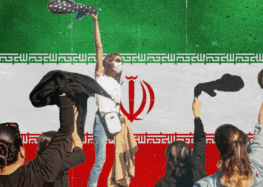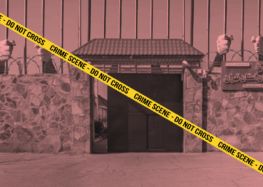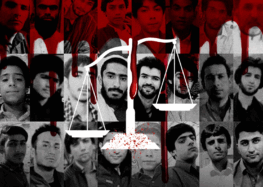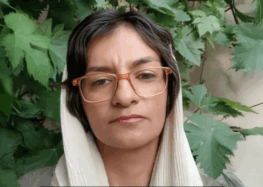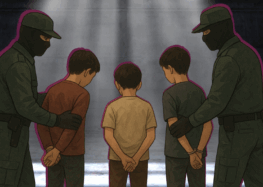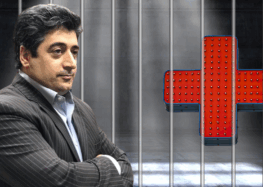Kahrizak Plaintiff Withdraws Murder Suit Against Mortazavi; No Witnesses Summoned
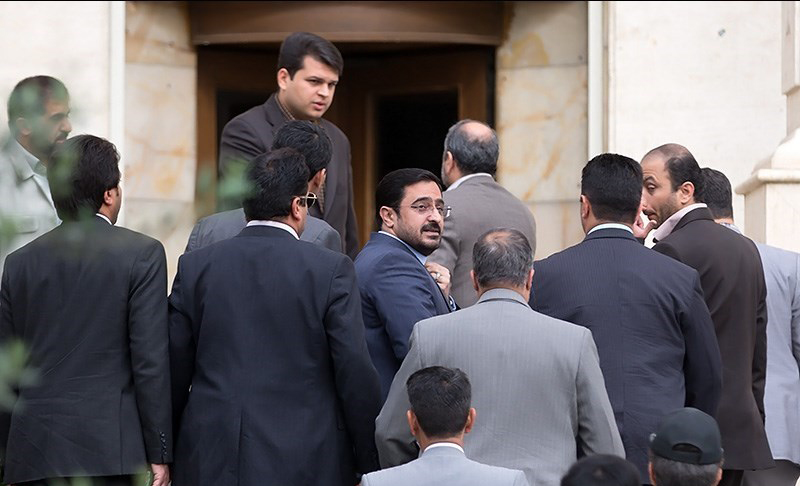
The father of Kahrizak victim Amir Javadifar withdrew his lawsuit against former Tehran Prosecutor Saeed Mortazavi (pictured) and released him of responsibility for his son’s death. The reason for the release prior to court adjournment is not clear.
The tenth session of the trial of former Tehran Prosecutor Saeed Mortazavi and two other officials for the deaths in Kahrizak Prison of three detainees in 2009 opened yesterday with the father of one of the victims withdrawing his “participation in murder” suit against Mortazavi. The eleventh and final session of the trial is being held today, and so far none of the plaintiffs’ witnesses have been summoned.
The father of Amir Javadifar released Mortazavi of responsibility prior to the commencement of the tenth session of the Kahrizak trial at Branch 76 of the Tehran Penal Court. According to Iran Student News Agency, the elder Javadifar’s lawyer Mohammad Saleh Nikbakht told reporters at a court recess that his client provided the release to the court without his knowledge, and when asked whether his client may have been intimidated or bribed to withdraw his lawsuit, he said, “I don’t know.”
Nikbakht added that the release is only for Saeed Mortazavi’s “participation in murder” charge, and that the rest of Mortazavi’s and other defendants’ charges are still under review.
According to Mehr News Agency, the father of Mohammad Kamrani, another young man who lost his life at Kahrizak, said that he was unaware of the Javadifar release until the session. “I learned at the trial session that he went to the court branch yesterday [May 19] to submit his release,” he told Mehr. It is not yet clear why Javadifar has withdrawn his lawsuit. There is only one more session left of the Kahrizak trial, set for today, and so far none of the witnesses offered by the plaintiffs have been summoned to testify.
Over the past ten sessions, the plaintiffs offered a number of witnesses, including some Kahrizak detainees who experienced the events of the summer of 2009 firsthand. Other witnesses introduced to the court were Head of the National Inspection Organization Mostafa Pourmohammadi, Prosecutor General Gholamhossein Mohseni Ejei, and Dorri Najafabadi. “So far, only those witnesses the judges deemed necessary have appeared in court sessions; they are the ones deciding on the witnesses,” Kamrani’s father said.
At the eighth court session, when asked by a reporter why the three witnesses with official positions had not been summoned to testify, Judge Siamak Modir Khorasani said, “I did not see a need to summon those witnesses.”
The May 20 session was held in the presence of plaintiffs, their lawyers, and Saeed Mortazavi, the case’s top defendant, as well as Ali Akbar Heydarifar, another defendant in the case. As in previous court sessions, at this session Judge Hassan Zare Dehnavi, the case’s third defendant, was not present. According to the plaintiffs and their lawyers, Saeed Mortazavi was the only defendant who defended himself today. Mortazavi did not accept any of the charges. His defense was left incomplete and the rest of his defense and that of the other two will be heard at the next session.
The eleventh session will be held today, May 21. All Kahrizak trial sessions have been held behind closed doors and the plaintiffs have not been allowed to provide court details to the media.
The Kahrizak court sessions have so far been held February 26, March 10, March 11, April 29, May 1, May 5, May 7, May 13, May 15, and May 20. The case has three defendants: Saeed Mortazavi, Hassan Zare Dehnavi, and Ali Akbar Heydarifar. According to the Prosecutor’s indictment, Saeed Mortazavi has been indicted for “participation in murder,” “participation in illegal detention,” and “participation in issuing untrue reports through ordering or encouraging related officers to prepare reports addressed to himself,” and Zare Dehnavi and Heydarifar have been charged with “participation in illegal detention.”
After the disputed presidential election of 2009, dozens of protesters arrested by security forces were transferred to Kahrizak, a horrific detention center in Southern Tehran, where according to numerous reports of eyewitnesses, detainees were subjected to psychological and physical torture and sexual abuse.
Mehdi Karroubi, a presidential candidate in 2009, asked Members of the Parliament to pursue allegations of rape inside the Kahrizak Detention Center in 2009. After an initial flurry of reports, the subject was dropped and the individuals responsible for finding facts about the situation were imprisoned. The mistreatment and torture of detained protesters inside Kahrizak led to the deaths of at least three young men, Mohammad Kamrani, Mohsen Rooholamini, and Amir Javadifar. The families of the three victims insisted that the “judicial official who issued the orders that led to the set of events” be put on trial, and more than three years after the incident the trial began in early 2013. After the media attention, the Kahrizak Detention Center was closed down in 2010.
Saeed Mortazavi has not accepted any of his charges so far, and has said that he and the other judges are neither guilty nor responsible and that there is no shred of evidence for the charges leveled against them. He has also stated that the court is not qualified to review this case and that it should be held publicly. But while the former Tehran Prosecutor considers himself and the other defendants innocent and without responsibility, at the third session of the trial, Ali Akbar Heydarifar told the reporters that he is responsible for the whole situation and that he ordered the transfer of the detainees to Kahrizak in the summer of 2009.
Mohammad Saleh Nikbakht, one of the lawyers representing the Kahrizak victims’ families, spoke to reporters about the charges raised against the defendants. “I and other lawyers representing the plaintiffs continue to believe that the main defendant in this case is Saeed Mortazavi, because while he was aware of the physical capacity of the Kahrizak Detention Center and its conditions, he agreed to the transfer of 145 detainees on July 9, 2009. He was fully aware of the physical conditions and the way the detainees were treated inside Kahrizak. He did not take any action to prevent the dispatch of the detainees to this detention center, nor did he provide any oversight of the detention center after the detainees were transferred there. He additionally dragged his feet in returning the detainees to Evin Prison. The cause of death for all three victims of Kahrizak, according to the findings of the 13-member Medical Examiners and faculty members of Tehran Medical Sciences University, was ‘repeated blows on their bodies, wounds on their bodies, infection of the wounds without any treatment or attempt to treat them,’” the lawyer said.

